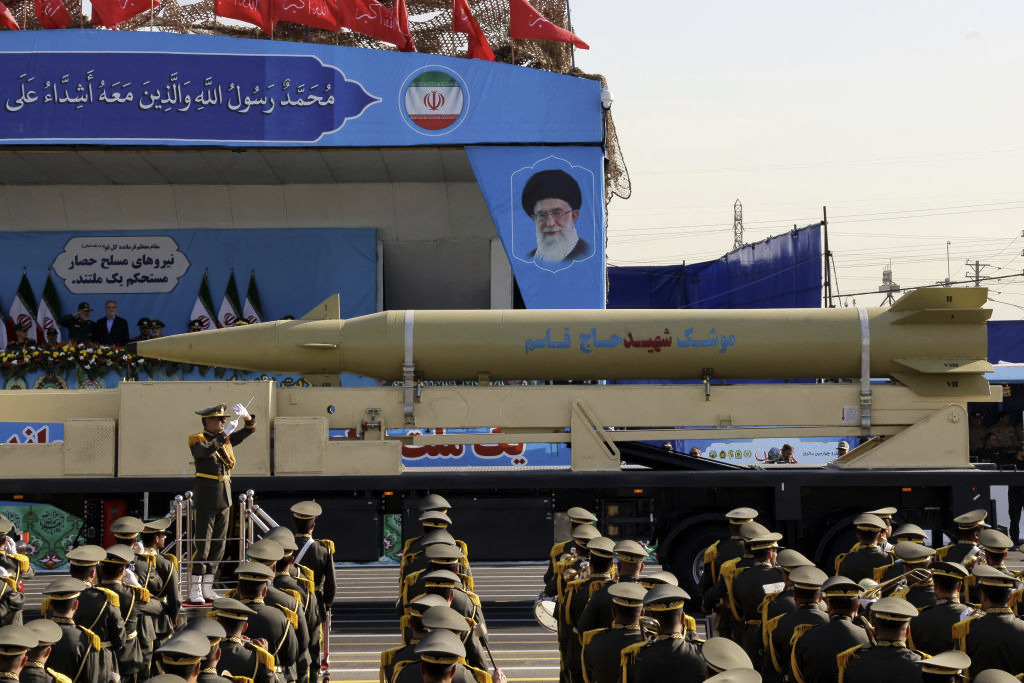
In 2015, the Iranian regime successfully manipulated the West into believing that it was ready to embrace moderation and diplomacy. Under the so-called "moderate" president, Hassan Rouhani, Iran engaged in negotiations that led to the Joint Comprehensive Plan of Action (JCPOA), known as the "Iran nuclear deal." This agreement provided Iran's ruling mullahs with significant sanctions relief, unfreezing billions of dollars in assets, allowing it to resume selling oil on global markets, and the ability legitimately to have as many nuclear weapons as they liked in just a few years – well after the deal's father, President Barack "not on my watch" Obama was safely out of office -- which just so happens to be this coming October 2025.
While Western governments portrayed the JCPOA as a diplomatic victory, the Iranian regime saw it as a lifeline. Iran's economy had been severely weakened by sanctions imposed during the George W. Bush administration, but the Obama administration's eagerness to secure a deal gave Tehran exactly what it wanted: money, legitimacy, time and a path to nuclear weapons.
The primary beneficiaries of the JCPOA were not the Iranian people. Instead, the biggest winners were the Iran's Islamic Revolutionary Guard Corps (IRGC) and the regime's network of proxy militias and terrorist organizations across the Middle East and beyond. With the influx of cash, Iran expanded the IRGC's operations, funneled weapons and cash to Hezbollah in Lebanon and Hamas in Gaza, bolstered Shiite militias in Iraq and Syria, and raced ahead with its nuclear weapons program.
The result, unsurprisingly, was a significant increase in regional instability. Iran-backed terrorist groups were emboldened, leading to more aggressive actions against U.S. interests, Israeli targets, and Sunni Arab rivals. The repercussions of the West's misguided diplomacy were laid bare on October 7, 2023, when Hamas launched a devastating invasion of Israel from the Gaza Strip. In the gruesome massacre, more than 1,200 Israelis were murdered, with many tortured, raped, beheaded or burned alive, and 251 Israelis were abducted, taken to Gaza and held hostage. This attack did not happen in a vacuum; it was a direct consequence of years of Iran funding, training and arming Hamas and its other terrorist proxies.
Now, a decade later after the JCPOA, Iran is playing exactly the same game again. This time, the supposed face of "moderation" is President Masoud Pezeshkian. Just as Rouhani did in 2015, Pezeshkian is making overtures toward the West, signaling a willingness to engage in negotiations. He has already reached out to European leaders, while expressing Iran's ostensible interest in diplomacy and nuclear transparency. Recent statements from other Iranian officials also suggest that Iran is eager for talks.
This offer might seem, on the surface, a promising development. History tells us it is not. The reality is that Iran is desperate for sanctions relief. Iran's economy is struggling, and after the reinstatement by the second Trump administration of its "maximum pressure" policy toward Iran, which will most likely further restrict its access to global markets and financial resources, the regime's concerns have deepened.
Lifting the sanctions against Iran would provide it with the financial resources needed to rebuild its military capabilities and once again strengthen its regional proxies, Hezbollah, Hamas, and the Houthis, all of which have suffered significant blows after provoking Israel's military. Iran sees an opportunity to once again deceive the West, gain economic relief, and use the proceeds to continue proceeding with its nuclear weapons program and destabilizing the Middle East.
Adding to the regime's apprehensions, Iran's Supreme Leader Ayatollah Ali Khamenei recently repeated the need to enhance Iran's military capabilities. His statement exposes the real intentions behind Iran's diplomatic overtures. While Iran may publicly claim to seek peace and dialogue, its leadership is simultaneously preparing for further military escalation and expansion. The regime has absolutely no interest in abandoning its nuclear ambitions or curbing its support for terrorist groups; rather, it seeks to buy time and resources precisely to maintain its long-term strategic goals.
The West must not stupidly waltz into this mousetrap again. The JCPOA deal proved to be a catastrophic mistake for the West. It empowered Iran's Islamist mullahs not only at the expense of regional security and freedom of the Iranian people, but the entire Middle East. Iran's regime has shown time and again that it will exploit diplomatic engagement to continue its malign activities. There can be no naive assumption that Iran will act in good faith. The lesson from the past four decades is clear: economic relief for Iran translates into more funding for terrorism, more weapons for proxy militias, an imminent nuclear weapons breakout and more instability in the Middle East.
The only way to curb Iran's aggressive ambitions is through sustained economic sanctions, military deterrence, dismantling its nuclear program, and especially regime change. No one must ever again receive 74 lashes or prolonged imprisonment for a song protesting women's mandatory head coverings. Girls must be able to go to school again without fear of being gassed. People must be able to practice the religion of their choice without being flogged or imprisoned. And no woman or girl must ever again be murdered or flogged for declining to wear a headscarf.
Narges Mohammadi, 49, a prominent journalist, was sentenced to 80 lashes and imprisonment for protesting Iran's torture in prison and runaway death sentences. In 2024 alone, 975 Iranians were executed – a "horrifying escalation."
We have seen in Afghanistan the Taliban's increasing restrictions on the population (such as here and here) after President Joe Biden's abrupt withdrawal of US forces. The world must not make the same mistake -- leaving a fanatic regime in power to wield its fanaticisms -- ever again.
Dr. Majid Rafizadeh, is a political scientist, Harvard-educated analyst, and board member of Harvard International Review. He has authored several books on the US Foreign Policy. He can be reached at dr.rafizadeh@post.harvard.edu


